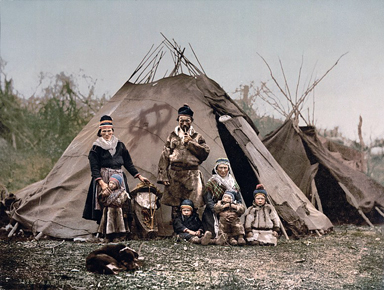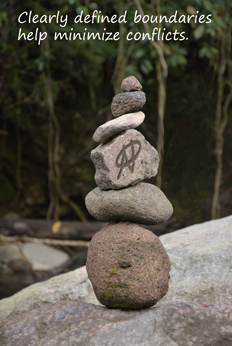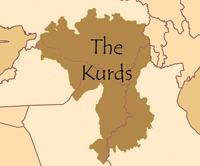
Nothing will end war unless the people themselves refuse to go to war. - Albert Einstein
Be the change that you want to see in the world. - Mohandas Gandhi
Wars are poor chisels for carving out peaceful tomorrows. - Martin Luther King, Jr.

Beginner's Guide to Peace - Mapping the Terrain
“Your goals are the road maps that guide you and show you what is possible for your life.” - Les Brown
Homesteading and the Recognition of Ownership

More broadly and with regard to land, once any terrestrial resource is homesteaded and a border declared around the encompassing land, ownership of other resources on that plot are usually recognized as property of the original homesteader as well. This is a practical arrangement that
This is not to say that it is necessary for there to be a single static owner of all resources within a given plot. The original inhabitant, for example, could assign or sell rights to various other resources within that plot, granting one party the right to drill for water while giving another party the right to mine. The original homesteader would also have the right to transfer ownership of the land, and some or all resources within, to another party as long as the transfer did not violate any standing agreements with other stakeholders.
Negotiation and Harmonious Order

The musician Wynton Marsalis once described jazz as a series of negotiations. Each player may have his or her own agenda but will work

The so called “Wild West” of the 19th century U.S., for example, was actually
The Destructive Force of Government

Unfortunately,
The impact of this

The arrogant disregard by the European powers, and eventually the United States, towards the property rights and the historical claims of peoples in territories they ruled continued well into the twentieth century. The end of World War I, for example, saw
----------------------------------------------------
Essentials
- The Homestead Principle is the application of the first use rule.
- The government practice of Eminent Domain is a violation of the homestead principle and the NAP.
__________________________________
Notes
1. ^ "The real power of Jazz is that a group of people can come together and create improvised art and negotiate their agendas... and that negotiation is the art" - Wynton Marsalis from Jazz: A Film by Ken Burns.
2. ^ "Ownership is not something that can be seen, heard or touched. It is a trilateral relationship among persons in relation to an object" - Gerard Casey from Libertarian Anarchy: Against the State.
3. ^ "Was the “Wild West” Really So Wild?" - 33 Questions About American History You’re Not Supposed to Ask by Tom Woods.
4. ^ "Freedom of Radio and Television" - For a New Liberty: The Libertarian Manifesto by Murray N. Rothbard.
5. ^ The IEEE Standards Association
Picture Credits
^ Homesteading: Saami Family, Norway ,1900. Public domain photo downloaded from Wikimedia Commons.
^ Harmonious order: Gu Hongzhong's Night Revels. Chinese painting from the Song Dynasty (960-1279), copied from an earlier 10th century work. Public domain photo downloaded from Wikimedia Commons.
^ River rocks mark the spot: Photo and artwork by Andrew Lesko.
^ Plague: Arrival of Cortes in Vera Cruz. 17th century painting from the Library of Congress.
^ Map of the Kurdish people: Assembled from public domain maps.